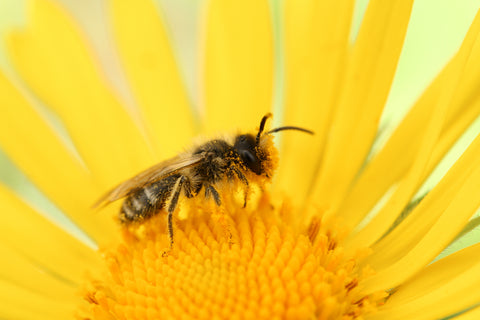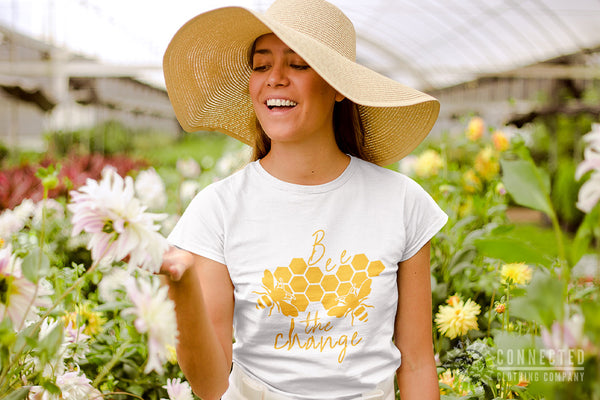
According to a recent report published by the Center for Biological Diversity, more than half of the North American bee species are declining and nearly 1 in 4 are at risk of extinction.
Read on to find out why bees are so important, why their populations are declining, and 4 ways you can help to save the bees!
Why bees are so important
Bees are the worlds primary pollinators and are essential for maintaining a functional ecosystem [1]. Flowering plants rely heavily on bees for pollination to produce fruits and seeds. Without bees, there are not enough pollinators to continue the current pollination rate. The crops that bees pollinate provide about 35% of our global food supply and bring in over $20 billion in agricultural services annually [1,3]. In other words, bees are responsible for about one in every three bites of food that we eat! Not only are bees beneficial to human food production, but the plants they pollinate also provide food for countless other species [2].
Why bee populations are declining
The main threat and cause of bee population decline is the dramatic intensification of agriculture. Mass agriculture destroys bee habitat by immensely decreasing the diversity of pollination and food sources available to bees from fields only containing one crop. These single crop fields reduce the amount of pollen available for bees to thrive and decrease their immune response [3].
In addition, mass agriculture commonly uses pesticides that are toxic to insects. Not only do these chemicals harm insects, but they also kill flowering weeds that are beneficial to pollinators [3].
Like humans, bees have their own diseases and parasites that can decrease their health and potentially kill them. When combined with poor nutrition and/or poisoning, sick bees are much less likely to survive [3].
What can you do?
- Plant native, bee-friendly plants and flowers in your garden and yard. Try to avoid plucking the weeds, the more diverse - the better!
- Don't use pesticides, herbicides, or fungicides on your lawn or garden. These are extremely harmful to the bees! If the plants are contaminated, more than likely the bees are affected too.
- Buy local, raw honey. Head to a local farmers market and meet some beekeepers! Support your local beekeepers interested in sustainability and bee conservation.
- Buy local, organic food. Most large agriculture producers use chemicals and pesticides that are harmful to bees. Support your local organic farmers!
One last way you can help to save the bees is by donating to the awesome organizations working tirelessly to save them! With every purchase of our Bee The Change Tee, 10% of the proceeds are donated to the Honeybee Conservancy!

Let's spread the word about the importance of bees and raise awareness to help save them!
Sources:
[2] Michener, C. D. 2007. Bees of the World, Second Edition. Baltimore, MD: Johns Hopkins University Press: 831 pp
[3] Spivak, M., E. Mader, M. Vaughan, and N. H. Euliss Jr. 2010. The Plight of the Bees. Environmental Science and Technology, 45(1).
Featured Image Credit: Behzad Ghaffarian / Unsplash
In-Article Image Credit: Christoph Polatzky / Unsplash

